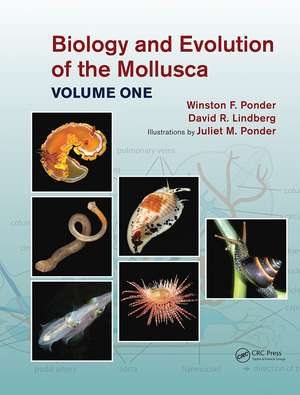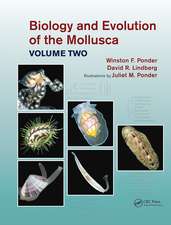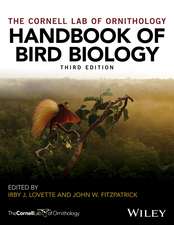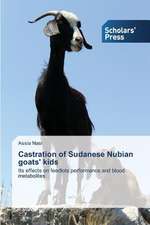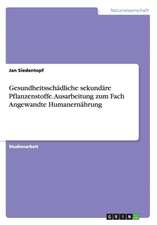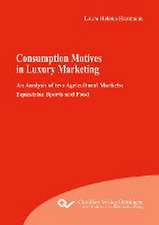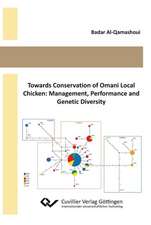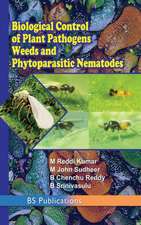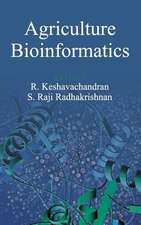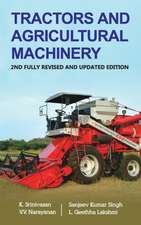Biology and Evolution of the Mollusca, Volume 1
Autor Winston Frank Ponder, David R. Lindberg, Juliet Mary Ponderen Limba Engleză Hardback – 12 noi 2019
Key features of both volumes:
- up to date treatment with an extensive bibliography;
- thoroughly examines the current understanding of molluscan anatomy, physiology and development;
- reviews fossil history and phylogenetics;
- overviews ecology and economic values; and
- summarises research activity and suggests future directions for investigation.
David R. Lindberg is former Chair of the Department of Integrative Biology, Director of the Museum of Paleontology, and Chair of the Berkeley Natural History Museums, all at the University of California. He has conducted research on the evolutionary history of marine organisms and their habitats on the rocky shores of the Pacific Rim for more than 40 years.
The numerous elegant and interpretive illustrations were produced by Juliet Ponder.
| Toate formatele și edițiile | Preț | Express |
|---|---|---|
| Paperback (1) | 373.35 lei 3-5 săpt. | +83.54 lei 6-10 zile |
| CRC Press – 30 sep 2021 | 373.35 lei 3-5 săpt. | +83.54 lei 6-10 zile |
| Hardback (1) | 1260.48 lei 6-8 săpt. | |
| CRC Press – 12 noi 2019 | 1260.48 lei 6-8 săpt. |
Preț: 1260.48 lei
Preț vechi: 1660.17 lei
-24% Nou
Puncte Express: 1891
Preț estimativ în valută:
241.20€ • 252.67$ • 199.90£
241.20€ • 252.67$ • 199.90£
Carte tipărită la comandă
Livrare economică 09-23 aprilie
Preluare comenzi: 021 569.72.76
Specificații
ISBN-13: 9780815361695
ISBN-10: 0815361696
Pagini: 924
Ilustrații: 43 Tables, black and white; 303 Illustrations, color; 18 Illustrations, black and white
Dimensiuni: 216 x 280 x 57 mm
Greutate: 3.28 kg
Ediția:1
Editura: CRC Press
Colecția CRC Press
ISBN-10: 0815361696
Pagini: 924
Ilustrații: 43 Tables, black and white; 303 Illustrations, color; 18 Illustrations, black and white
Dimensiuni: 216 x 280 x 57 mm
Greutate: 3.28 kg
Ediția:1
Editura: CRC Press
Colecția CRC Press
Cuprins
Volume 1
Foreword
Acknowledgements
About the Authors
Chapter 1 - Introducing Molluscs
Chapter 2 - Overview of Molluscan Physiology and Genomics
Chapter 3 - Shell, Body, and Muscles
Chapter 4 - The Mantle Cavity and Respiration
Chapter 5 - Feeding and Digestion
Chapter 6 - Circulatory and Excretory Systems
Chapter 7 - Nervous System, Sense Organs, Learning and Behaviour
Chapter 8 - Reproduction and Development
Chapter 9 - Natural History and Ecology
Chapter 10 - Molluscs and Humans
Chapter 11 - Research on Molluscs – Some Historical, Present, and Future Directions
Appendix
References
Index
Foreword
Acknowledgements
About the Authors
Chapter 1 - Introducing Molluscs
Chapter 2 - Overview of Molluscan Physiology and Genomics
Chapter 3 - Shell, Body, and Muscles
Chapter 4 - The Mantle Cavity and Respiration
Chapter 5 - Feeding and Digestion
Chapter 6 - Circulatory and Excretory Systems
Chapter 7 - Nervous System, Sense Organs, Learning and Behaviour
Chapter 8 - Reproduction and Development
Chapter 9 - Natural History and Ecology
Chapter 10 - Molluscs and Humans
Chapter 11 - Research on Molluscs – Some Historical, Present, and Future Directions
Appendix
References
Index
Notă biografică
Winston F. Ponder (Ph.D, D.Sc, FRZSNSW) was educated in New Zealand, and employed as a curator at the Australian Museum in 1968, where he was a Principal Research Scientist in 1980 to his retirement in 2005. He has held honorary appointments at several universities through co-supervision of post graduate students and running courses on systematics and on Mollusca. He is currently a Senior Research Fellow of the Australian Museum. He has been actively involved with several societies, in particular, the Malacological Society of Australasia, and edited their journal, Molluscan Research, for 13 years (until last Dec.). He has served on several committees, including the Australian Biological Resources Survey (ABRS) Advisory Committee for six years. His research interests centre on molluscan morphology, systematics, and phylogenetics, especially of gastropods. He has also been involved in the conservation of invertebrates, and his recent research is focused on the biology and systematics of freshwater and estuarine molluscs of Australia and the region as well as the aquatic invertebrate fauna of springs associated with the Australian Great Artesian Basin. He co-edited a book on the phylogeny of molluscs with D. Lindberg (2008) and has edited three other books and, to date, is the author of 247 reviewed publications. He is also involved in the production of interactive keys to marine and freshwater molluscs.
David R. Lindberg is Professor Emeritus of Integrative Biology, Curator Emeritus in the UC Museum of Paleontology, and a former member of the Center for Computational Biology at UC Berkeley. He is a former Chair of the Department of Integrative Biology, Director of the UC Museum of Paleontology, and Chair of the UC Berkeley Natural History Museums. He has authored over 125 peer-reviewed papers and edited or authored 3 books on the evolutionary history of nearshore marine organisms and their habitats. At Berkeley, he served as major advisor to 21 Ph.D graduate students and 6 post-doctoral researchers. In addition to providing graduate seminars in evolution and organismal biology, he regularly taught a marine mammal course, an invertebrate zoology course with laboratories, and 2 semester principals of phylogenetics course. Prof. Lindberg has conducted research and fieldwork along the rocky shores of the Pacific Rim for over 40 years. In addition to his research and teaching, Prof. Lindberg was actively involved in K・16 outreach projects at the UC Museum of Paleontology, and focused on the use of the Internet to increase access to scientific resources, and the training of teachers in principles of evolutionary biology, science, and global change.
David R. Lindberg is Professor Emeritus of Integrative Biology, Curator Emeritus in the UC Museum of Paleontology, and a former member of the Center for Computational Biology at UC Berkeley. He is a former Chair of the Department of Integrative Biology, Director of the UC Museum of Paleontology, and Chair of the UC Berkeley Natural History Museums. He has authored over 125 peer-reviewed papers and edited or authored 3 books on the evolutionary history of nearshore marine organisms and their habitats. At Berkeley, he served as major advisor to 21 Ph.D graduate students and 6 post-doctoral researchers. In addition to providing graduate seminars in evolution and organismal biology, he regularly taught a marine mammal course, an invertebrate zoology course with laboratories, and 2 semester principals of phylogenetics course. Prof. Lindberg has conducted research and fieldwork along the rocky shores of the Pacific Rim for over 40 years. In addition to his research and teaching, Prof. Lindberg was actively involved in K・16 outreach projects at the UC Museum of Paleontology, and focused on the use of the Internet to increase access to scientific resources, and the training of teachers in principles of evolutionary biology, science, and global change.
Recenzii
"… an immensely useful "go-to resource" … on almost any mollusk-related topic. … this is a brilliant work that should be on the desk of any serious "student" of mollusks, at any career level." - American Malacological Bulletin, 38 (1) 2020.
"The two-volume set is a treasure trove for anyone lucky enough to be teaching malacology, a reference work for investigators in a multitude of fields, and a true companion for students and advanced researchers. It will stand for decades, joining immediately the list of classic volumes covering the Mollusca. A tour d’force that speaks to the knowledge, dedication, and talent of the authors, illustrator, and also the publisher that had the vision to make such an epic possible in today’s publishing world." - Sandra E. Shumway in National Shellfisheries Association Quarterly Newsletter 2020 (2).
"The scholarship and deep thought that the authors bring to this monumental work are beyond staggering... It is unlikely that the scientific achievement manifested in the publication of this work will be surpassed in the foreseeable future. Whichever field of molluscan study a student or seasoned researcher is contemplating, this publication is the resource to consult first for an authoritative synthesis. Anyone with an interest in living and extinct molluscs will want to own and consult this landmark set of volumes." - Geerat J. Vermeij in The Quarterly Review of Biology
"In case the rest of my review is not emphatic enough, Biology and Evolution of the Mollusca (hereafter BEM) is the most wonderful molluscan work I have ever seen. It is an intellectual tour de force, truly astounding in its breadth and depth of subject coverage; the sampling of the literature is comprehensive and up to date; and the figures are works of art while simultaneously being – like the text – exceptionally clear and informative. The authors – writers Winston F. Ponder and David R. Lindberg, together with illustrator Juliet M. Ponder – reviewers and publisher are all to be congratulated on such an outstanding result. … [BEM] will be the standard reference work about the Mollusca for years to come. It undoubtedly will, but I changed my mind; it can do better! Instead, I would like to think that BEM will stimulate such a flowering of molluscan research that it will soon be seen as a more foundational document." - Hamish G. Spencer in Molluscan Research
"The two-volume set is a treasure trove for anyone lucky enough to be teaching malacology, a reference work for investigators in a multitude of fields, and a true companion for students and advanced researchers. It will stand for decades, joining immediately the list of classic volumes covering the Mollusca. A tour d’force that speaks to the knowledge, dedication, and talent of the authors, illustrator, and also the publisher that had the vision to make such an epic possible in today’s publishing world." - Sandra E. Shumway in National Shellfisheries Association Quarterly Newsletter 2020 (2).
"The scholarship and deep thought that the authors bring to this monumental work are beyond staggering... It is unlikely that the scientific achievement manifested in the publication of this work will be surpassed in the foreseeable future. Whichever field of molluscan study a student or seasoned researcher is contemplating, this publication is the resource to consult first for an authoritative synthesis. Anyone with an interest in living and extinct molluscs will want to own and consult this landmark set of volumes." - Geerat J. Vermeij in The Quarterly Review of Biology
"In case the rest of my review is not emphatic enough, Biology and Evolution of the Mollusca (hereafter BEM) is the most wonderful molluscan work I have ever seen. It is an intellectual tour de force, truly astounding in its breadth and depth of subject coverage; the sampling of the literature is comprehensive and up to date; and the figures are works of art while simultaneously being – like the text – exceptionally clear and informative. The authors – writers Winston F. Ponder and David R. Lindberg, together with illustrator Juliet M. Ponder – reviewers and publisher are all to be congratulated on such an outstanding result. … [BEM] will be the standard reference work about the Mollusca for years to come. It undoubtedly will, but I changed my mind; it can do better! Instead, I would like to think that BEM will stimulate such a flowering of molluscan research that it will soon be seen as a more foundational document." - Hamish G. Spencer in Molluscan Research
Descriere
The phylum Mollusca is the second largest group of animals (after Arthropoda) and they occur in virtually all habitats. In this volume general chapters draw from a diverse and extensive literature on molluscan physiology, natural history (including ecology), and interactions with humans.
